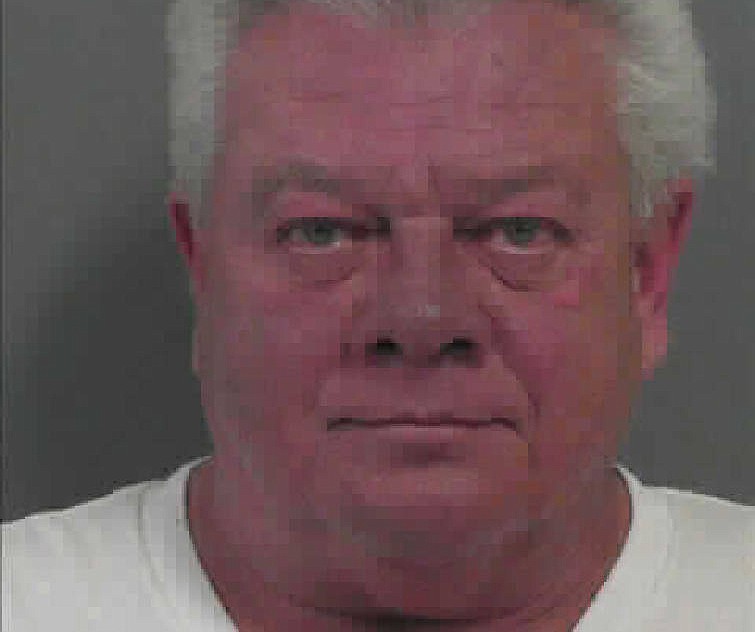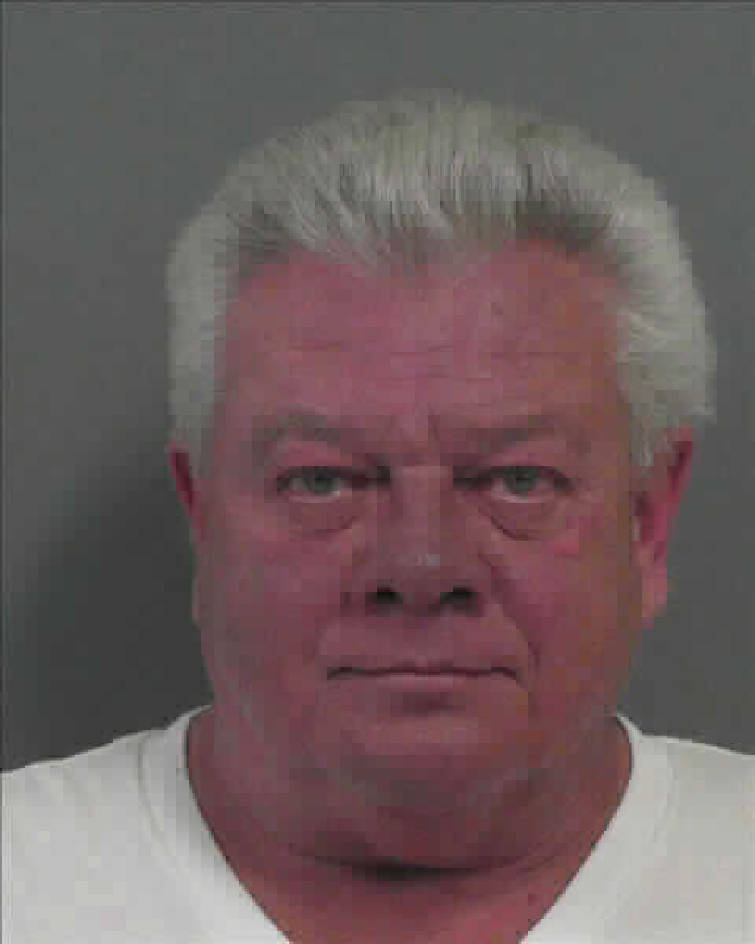CHICKAMAUGA, Ga. - Police arrested Patrick Lance Wooten for shoving his wife to the ground in August, hitting his father in January, pushing his father in February and choking his mother in April.
Each time, not more than a week later, he returned home.
There, the family fights boiled over on May 6. During another feud, his father, Walker County Court Officer Patrick Ray Wooten, shot and killed him. The Georgia Bureau of Investigation charged the elder Wooten with malice murder, though his attorney has claimed self defense.
But could law enforcement have stopped this? Could the legal system have kept Lance Wooten away from his family, what with so many arrests in such a short period of time?
Walker County Sheriff Steve Wilson, who runs the jail and is Pat Wooten's boss, said law enforcement's hands were tied. Lance Wooten's arrests were all for misdemeanor charges of simple battery. And a judge won't hold someone in jail for what appears to be a low-level offense.
"They just about have to set a bond," Wilson said. "You just can't hold people on those misdemeanors."
And so his criminal run-ins went like this: Lance Wooten was arrested Aug. 11; he bonded out the next day. He was arrested Jan. 25 and made bond four days later. He was arrested Feb. 23 and left jail the next day. And he was arrested April 25, going home a week later. Four days after that, his father fatally shot him during an argument.
A judge might have had more options had a prosecutor handled Lance Wooten's previous cases differently. In 2014, before this last string of arrests, police charged him with domestic violence against his wife three times. But a state court solicitor dismissed each of those cases.
Years later, that decision made a significant difference. In Georgia, while the first conviction for battery against a family member is a misdemeanor, every one after that is a felony. This is supposed to stop dangerous, repeat offenders.
If Lance Wooten had been convicted on even one of the 2014 arrests, his bonds on the later charges would have been much higher - if a judge set a bond at all.
This was not the only compromise in his court history.
Lance Wooten's first violent offense occurred 12 years ago. According to a 2005 police report, someone in Chickamauga called him a snitch, and he in turn drove past the man's house and fired off two shots. He didn't hit anybody, but he pleaded guilty to counts of criminal damage to property.
A judge gave him 10 years' probation and told him to go to substance abuse treatment and anger management courses.
He didn't have another violent run-in until February 2014, when his wife accused him of hitting her in the face. A Chickamauga police officer wrote that she had a red, swollen mark under her cheek. Wooten denied striking her, though he couldn't explain the mark.
Five months later, his wife told police he punched her and gouged her eyes. Another arrest came in December, when his wife told an officer Wooten hit her on the left side of the face and grabbed the back of her neck.
Wooten's wife was arrested that night , too, after police found an abrasion on his neck. His mother, Judy Wooten, said he hit his wife after she shoved him.
In January 2015, State Court Judge Billy Mullinax agreed to dismiss all three simple battery charges against Lance Wooten after his wife said each incident was a misunderstanding.
State Court Solicitor Pat Clements does not remember the details of Lance Wooten's cases. But generally speaking, Clements said, he takes a wife's request to drop charges in domestic violence cases seriously.
He asks the accuser to come to court so he can talk to her in person, making sure she's not recanting the story out of fear of her boyfriend or husband. And how does he know?
"It kind of depends," he said. "After you talk to them, I 'd say you can tell, some of them."
Joan Prittie, the co-author of the Georgia Domestic Violence Benchbook for Judges, said in a 2015 Times Free Press article on the same topic that prosecutors should know how to handle victims who recant their stores.
Prittie did not discuss any specific case. But in general, she said, prosecutors can rely on the victim's initial statements, the officer's report of the scene, photographs of injuries and medical reports.
"There may not be enough evidence," she said. "We feel like many times, there is."
Ten days after Clements dismissed Wooten's battery cases, a Superior Court judge ordered him to enroll at Carter Hope Center, a residential treatment program in Dalton. He was to stay for six months, then enlist in an anger management program.
At that point, Wooten had been arrested twice for driving under the influence. He had pleaded guilty to possession of oxycodone, and police said they found MDMA when responding to a domestic violence call at his house. But just a week after arriving, Wooten left Carter Hope.
"I do not have problems with drugs or alcohol," he told a counselor, records show.
Carter Hope cannot hold patients against their will, but a member of the staff notified the probation office that Wooten was leaving. He had violated the judge's order, and a Walker County magistrate issued an arrest warrant. Two days later, a sheriff's deputy found Lance Wooten at his father's house, alone with his daughter. This violated his probation as well as a restraining order taken out by his wife.
But the deputy didn't arrest Lance Wooten. In an internal investigation of Pat Wooten weeks later, the deputy said nobody else was home to care for the 5-year-old girl. But the deputy called Pat Wooten and told him to bring his son to jail. He said Pat Wooten replied that he was going to talk to a judge and handle the warrant.
Pat Wooten gave a different account. He said he ran into Judge Kristina Cook Graham outside the courthouse and told her about the warrant for his son. He said Graham agreed that Lance didn't actually need substance abuse treatment. She told him to bring Lance to her office the next day and she would set a bond for him, allowing him to turn himself in and then quickly leave jail.
Assistant District Attorney Beth Evans, who was handling Lance Wooten's case, said nobody told her about the bond hearing. Instead, she saw Lance Wooten walk into the judge's office with his father and his wife, which was also a violation of an active restraining order.
Usually, a judge holds a hearing like that in a courtroom - and the prosecutor knows about it in advance. Graham did not respond to an email asking questions about the incident.
Evans wrote in a report to the sheriff's office that Pat Wooten looked unhappy to see her. She said she joined the group in the judge's office.
"I quickly figured out that [Graham] was setting bond and asked for some conditions if that was what she was doing," Evans wrote.
At Evans' request, Graham ordered Lance Wooten to avoid any contact with his wife.
Days later, during the sheriff's internal investigation, Wilson determined Pat Wooten violated staff policies.
He said Pat Wooten neglected his duties by not sending his son to jail when there was a warrant for him, and he abused his power by setting up a private bond hearing with the judge. The sheriff suspended Pat Wooten for two days.
He also told the elder Wooten the restraining order still stood, and that Lance Wooten could not have contact with his wife or daughter.
The next day, a probation officer visited Pat Wooten's house. Again, he found Lance Wooten inside with his daughter. He also found methamphetamine. Lance Wooten was arrested again.
"Pat and his wife loved their son and struggled constantly to help him deal with the effects of his addiction," Pat Wooten's attorney, David Dunn, said this week.
By last summer, the restraining order had expired. But his wife again reported alleged abuse, telling officers he shoved her to the ground. Wooten was arrested Aug. 11. He was due in Walker County State Court in January, but he didn't show.
The judge, Mullinax, scheduled a June hearing to discuss whether Wooten's bond should be revoked.
Five days later, on Jan. 25, Chickamauga police arrested Wooten again, this time on charges that he slapped his father after throwing an oxygen tank through an aquarium, punching a TV and ripping out a computer monitor. He went to jail that day, but the magistrate who set his bond did not know about Mullinax's order.
"They don't have access to what one court may have done and what orders may have been entered," Wilson said. "They have just a traditional paper folder file [with the defendant's criminal history]. They're not looking through the whole court system on a computer."
Four days later, court records show, Lance Wooten bonded out of jail. He was arrested again in February. And then once more in April.
After the April arrest, he remained in jail for a week before leaving on a $1,200 bond, for the last time.
Contact staff writer Tyler Jett at 423-757-6476 or tjett@timesfreepress.com. Follow him on Twitter @LetsJett.

